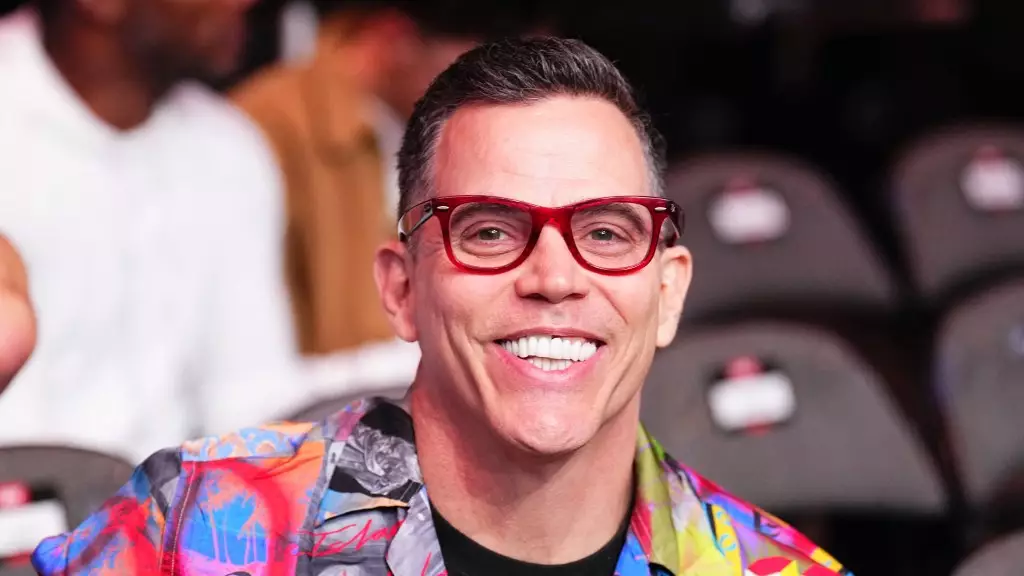In a world where creative expression often intersects with societal sensitivities, the story of comedian Steve-O’s reconsideration of a planned stunt offers a profound commentary on self-awareness and respect. Originally intending to undergo breast augmentation for a comedic bit during his Super Dummy Tour, Steve-O had a significant moment of reflection catalyzed by an unexpected encounter with a transgender person. This meeting led him to evaluate the consequences of his comedic choices, prompting him to ultimately cancel the stunt.
The notion that art, humor, and public performance can impact marginalized communities cannot be overstated. As Steve-O recounted, his initial motivation stemmed from a desire to create laughter and entertainment, not harm. However, upon engaging in a heartfelt conversation with a transgender individual, he was struck by the realization that the issue at hand transcended mere humor. This dialogue served as a wake-up call, emphasizing the intricate balance artists must maintain between their vision and its potential implications.
Steve-O’s traditional persona has often embraced shock value and audacity, hallmarks of the Jackass franchise. Yet, in his latest venture, he found himself at a crossroads where personal choice collides with social responsibility. His initial plan involved disguising himself as a woman at the Sturgis Motorcycle Rally, intending to elicit reactions that would spark controversy—and thus laughter—a familiar trope for his brand of humor. However, reflecting on this concept exposed the fragility of such a comedic approach, particularly regarding a marginalized community that already endures a high degree of scrutiny and prejudice.
Steve-O’s comments reveal an evolving understanding of identity and bodily autonomy, suggesting that what may seem like a harmless prank could inadvertently validate harmful stereotypes or behaviors towards transgender individuals. He candidly acknowledged that the pretext of ‘my body, my choice’ was overshadowed by the reality that his actions could be interpreted as an affront to those very principles of identity and respect.
The transformative impact of his encounter epitomizes the essential role of empathy in the creative process. Engaging with individuals who carry lived experiences different from one’s own can unveil blind spots in our thinking and lead to more thoughtful and inclusive creative choices. Steve-O’s journey emphasizes that comedy does not exist in a vacuum; rather, it reverberates across societal dynamics, meaning artists must navigate the complexities of their content carefully.
Moreover, his admission that he did not consult or consider the perspectives of the transgender community during his planning stages is a crucial reflection on the often-overlooked responsibility artists bear. The implication here is not simply about avoiding backlash but fostering a genuine understanding of the communities in which one may tread lightly with humor. By recognizing and admitting past oversights, Steve-O models a commendable trait that many in the public sphere often shy away from—accountability.
As Steve-O pivots away from his original plan, he highlights an important lesson for all creators: the necessity of self-reflection and growth. The decision to abandon the breast implant stunt not only safeguards against potential harm but also sets an example of conscious effort to respect diverse identities. This chapter in Steve-O’s career illustrates how one can transition from a reactive stance—where performers prioritize shock and entertainment—to a proactive approach grounded in inclusivity and awareness.
Art and comedy can serve as powerful tools for connection, but they can also perpetuate harm if wielded unmindfully. The evolution of Steve-O’s thought process showcases the potential for growth in understanding the responsibility that comes with the ability to influence opinions and challenge societal norms. Moving forward, his choices may serve as a springboard for other creators contemplating the implications of their work, urging them to approach humor not just as a vehicle for laughs, but as a medium that can either uplift or further marginalize communities.
In an era where the lines between personal expression and social conscience often blur, the actions of artists like Steve-O remind us that true creativity is not only about pushing boundaries but also about respecting the territory inhabited by others.

